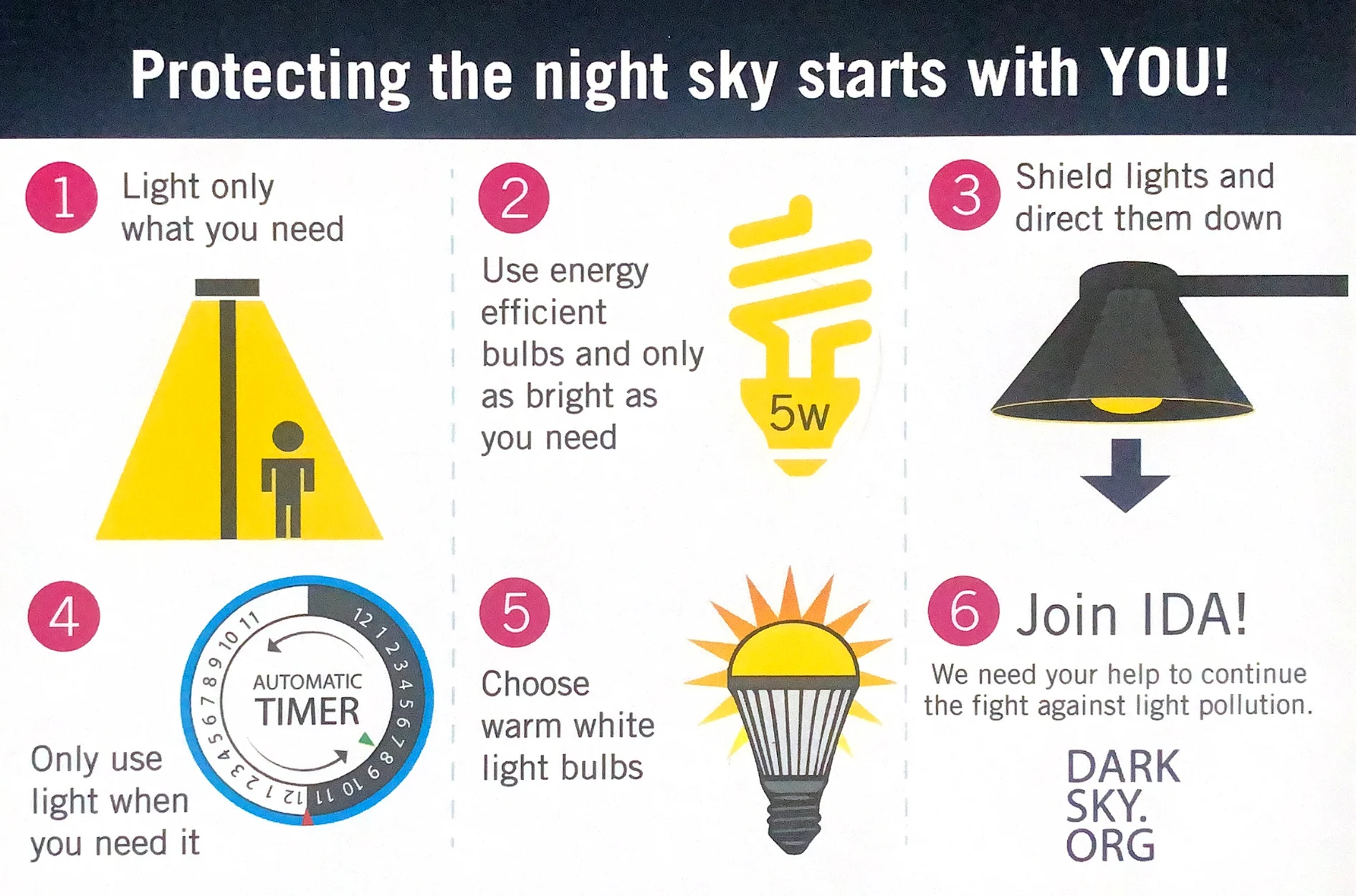In the hustle and bustle of urban life, it’s easy to overlook the beauty of the night sky. Yet, the Dark Skies movement advocates for preserving and restoring the natural darkness of our nighttime environment, not only for the benefit of stargazers and astronomers but also for the well-being of city residents. As city dwellers, we often find ourselves immersed in a sea of artificial light, but by embracing the principles of the Dark Skies movement, residential city neighborhoods can unlock a myriad of benefits.
1. Enhancing Health and Well-being
Artificial light at night, particularly blue light emitted from LED streetlights and screens, can disrupt our circadian rhythms, leading to sleep disturbances and potentially impacting overall health. By reducing light pollution in residential areas, Dark Skies initiatives promote better sleep quality and overall well-being among residents. Restoring natural darkness at night allows for proper melatonin production, leading to more restorative sleep patterns.
2. Promoting Wildlife Conservation
Excessive artificial lighting can have detrimental effects on local wildlife, particularly nocturnal species. Bright lights can disrupt natural behaviors such as foraging, mating, and migration patterns. By adopting Dark Skies practices, residential neighborhoods can create sanctuaries for wildlife, preserving biodiversity and ecological balance within urban environments.

3. Fostering Community Connection
The simple act of gazing up at a star-filled sky has a remarkable ability to bring people together. Dark Skies initiatives often involve community events such as stargazing parties, astronomy lectures, and night photography workshops. These activities not only educate residents about the importance of preserving natural darkness but also foster a sense of belonging and connection among neighbors.
4. Reducing Energy Consumption
Many cities waste significant amounts of energy through inefficient outdoor lighting practices. By implementing Dark Skies-compliant lighting fixtures and strategies, residential neighborhoods can significantly reduce light pollution while simultaneously cutting energy costs and lowering carbon emissions. Shielded and properly directed lighting minimizes wasted light, directing illumination where it’s needed without spilling into the night sky.

Conclusion
The Dark Skies movement presents a compelling vision for the future of residential city neighborhoods—one where the beauty of the night sky is cherished, wildlife thrives, and communities come together under the stars. So let us dim the lights, look up, and rediscover the enchanting world that awaits us in the darkness of the night sky.
